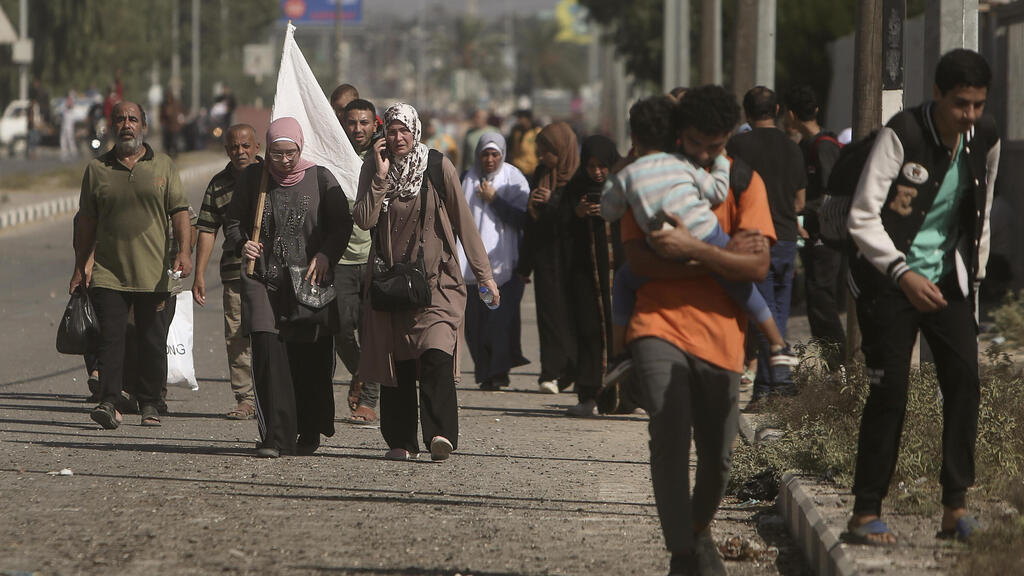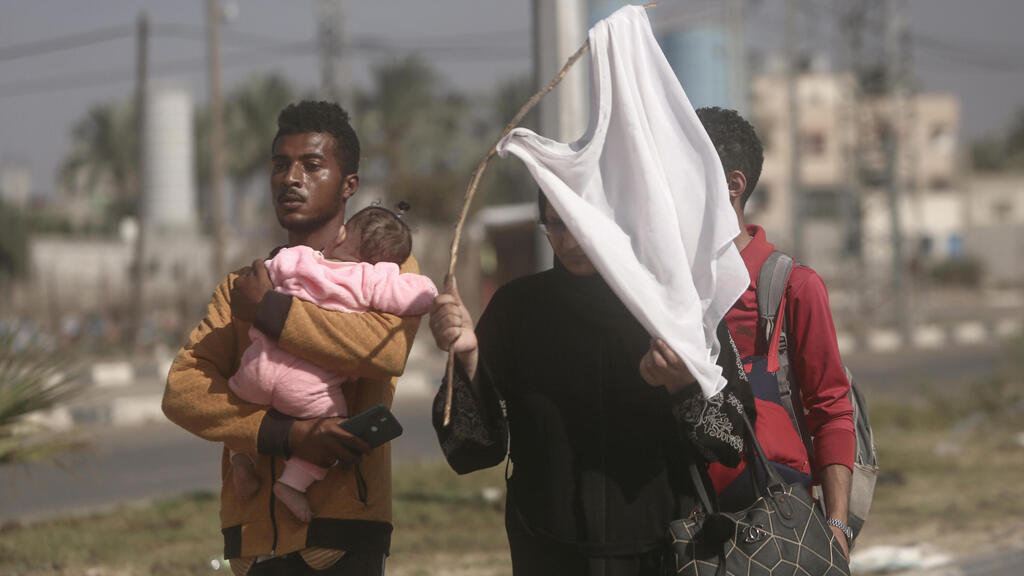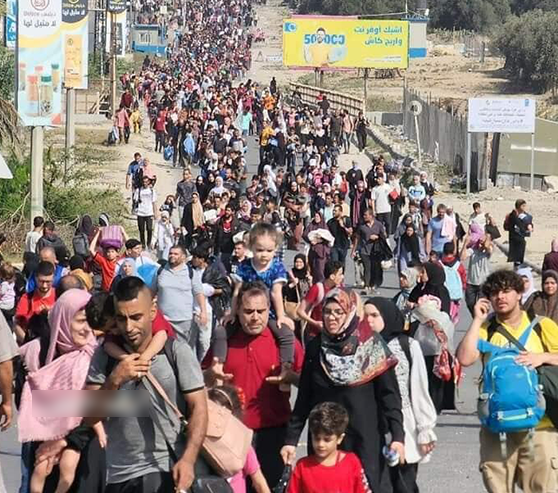Residents of northern Gaza make their way south through a humanitarian corridor
(Video: IDF Spokesman's Unit)
Starting again at 10:00 a.m., thousands of residents from northern Gaza responded to calls by the Israel Defense Forces and made their way to southern Gaza, south of the Gaza River, via the Salah al-Din Road.
More stories:
The thousands left their homes and moved forward on foot, with some waving white flags as a sign of surrender for the second day in a row. On Tuesday, many residents of the Gaza City’s Zeitoun neighborhood were filmed leaving . The IDF has taken over the neighborhood, and more and more residents in northern Gaza realize that, in light of the advance of the IDF soldiers, it is better for them to evacuate to the south - even if they have to travel foot.
3 View gallery


Palestinians are leaving Gaza City and heading for the southern Gaza Strip
(Photo: AP/Mohammed Dahman)
The IDF on Wednesday decided to extend the hours of the safe humanitarian corridor in light of the large number of people that decided to leave.
The IDF Arabic spokesperson posted on his X social media account: "Residents of Gaza, after the great response from the morning hours, we have decided to extend the operation of the safe corridor on the Salah al-Din Road for the movement of residents to the south of the Gaza River for another hour! For your safety, join the many thousands who headed to southern Gaza since the morning hours and take advantage of the opportunity until 3:00 p.m. to protect yourselves and your family members."
The safe corridor that the IDF opened Wednesday and over the last few days gave thousands of Palestinians from northern Gaza the opportunity to continue moving to safe areas in southern Gaza.
The United Nations Relief and Works Agency for Palestine Refugees (UNRWA) established the first camp to shelter refugees from the northern areas of the Gaza Strip in Khan Younis in the south, and many of these refugees suffer from a lack of water, food and basic supplies.
There are dozens of tents in the complex, and it feels like "a scene from the nakba of 1948," say its residents, referring to the mass exodus of Arabs during Israel's War of Independence. A resident of the Jabaliya camp who came to Khan Younis said: "I was afraid for my children and decided to come south; only in my dreams did I dream we would live like this."
Gazel, a young girl who arrived in southern Gaza, added: "I hope we will return home to my games and school."
The refugees have already gotten used to the new life in the tents despite all the difficulties, but they say that, at least this way, they are protected from the inferno that is happening in northern Gaza.
"We left here by bus. We were told that the UNRA institutions were safe," said Mahmoud Abu Sharach of Jabaliya. "We are here, but want to return to our homes. We don't want any more nakba, that's enough. We want to live safely."
3 View gallery


Waving white flags as they walk to the southern Gaza Strip
(Photo: AP/Mohammed Dahman)
Not all residents who were evacuated from their homes come to the UNRWA facilities; families who have relatives in the southern Gaza Strip move in with them and those without move to the refugee camps.
A Hamas source told Al-Sharq Al-Awsat newspaper that the Israeli army has imposed a siege on Gaza City, preventing water, food and medicine from reaching the residents, in an attempt to force them to leave.
"They are using the hunger policy in light of the violent and unprecedented bombing, targeting water tanks, bakeries, hospitals and natural energy sources, to push people into displacement. Perhaps they believe that this will incite them to resist," the source said.
The source confirmed that the Israeli forces are dealing with the Gaza terrorists on all fronts, and are unable to advance toward the city yet.
UN data shows that of the 2.4 million residents of Gaza, more than 1.5 million left their homes in the past month. According to UNRWA, the UN agency for Palestinian refugees, more than half a million are taking shelter in UNRWA facilities in the southern Gaza Strip. They say they are not able to take in new evacuees.




